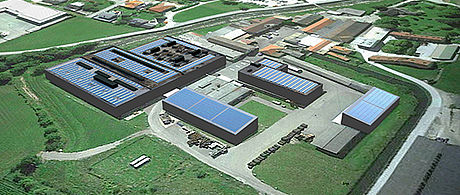“Our goal is to obtain all of the energy required for our production from CO²-neutral resources by 2030. The optimal use of the resources water and sun as well as biomass plays a decisive role.", Aegyd Pengg, CEO of the pewag group. The internationally active group of companies is investing a total of 8.5 million euros both in Kapfenberg (Styria) and in Brückl (Carinthia).
pewag group invests in green power to produce climate-neutral by 2030
Next to a new solar system in Kapfenberg, a new biomass power generation plant is built, which covers the total heat demand for the production site Hansenhütte as well as for 25 private households.
The production site in Brückl in Carinthia has been producing electricity with a diversion plant located on the Görtschitz river for decades. To raise the production of ecological electricity in the existing power plant, the plant will be renovated and extended.
Since 2020 pewag group operates a new established photovoltaic system in Brückl, which is countrywide the biggest commercial photovoltaic open space system. This plant produces a performance of 1 megawatt annually and will be extended to the surrounding open spaces of the industrial area.
“After the photovoltaic system has been expanded, electricity generation will be increased to 1.2 gigawatt hours of solar power annually. That corresponds to the annual energy requirement of almost 400 households,” adds Aegyd Pengg.
Overall, the new hydropower plant and the expansion of the photovoltaic system generate an annual electricity production of around 2.9 million kWh. This energy generation already covers two thirds of the total electricity requirement in the Brückl production site.
